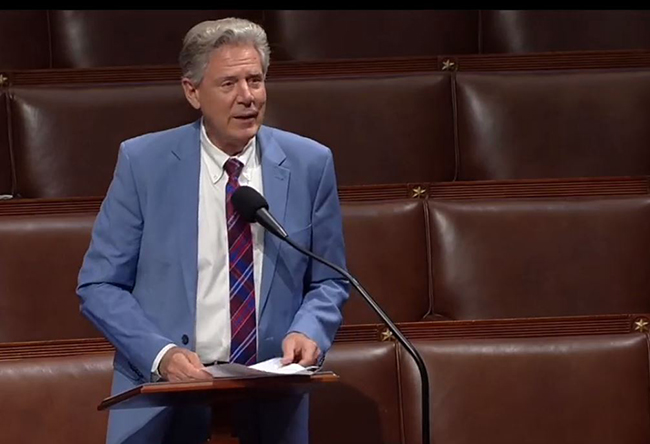The other day, the US House of Representatives passed an amendment introduced by Congressman Frank Pallone that would end US military financial assistance to Azerbaijan. According to experts, this assistance has amounted to about $100 million over the past three years. (For comparison, US military aid to Armenia in recent years has been significantly less, in the range of 1-2 million dollars). More specifically, we are talking about International Military Education and Training and External Military Financing programs, for which there are plans to no longer allocate funds from the US state budget. While the provision does not preclude the provision of discretionary military equipment that may be transferred by the Department of Defense under Section 333 of U.S. law, the political significance of the Congressional decision is significant. There is a good chance that the Senate will approve it and then President Biden will sign the bill. And this means that the United States wants to play a more serious role in regional policy.
Without underestimating the role of the Armenian community and the Armenian lobby in making this decision, however, I think that the problem is the state interests of the United States, which are contradicted by the excessive Russian-Azerbaijani-Turkish ambitions in the South Caucasus and especially China’s plans, which also include the so-called Zangezur Corridor. The situation is really difficult for us. At the moment, we do not seem to have the opportunity to publicly oppose Russian pressure. Such resistance could lead to new territorial and human losses because in that case, Russia will at least not be against new Azerbaijani provocations until we implement the plans developed and agreed upon by Putin and Erdogan. But that does not mean you should not be unaware of signals from the United States, France, and the EU in general. It seems to me that there is still a theoretical possibility to avoid “surrendering” in the end. And that requires work from our foreign policy makers. But first of all, it requires good awareness and a desire to work.
And conceptually, so to speak, “for the future,” it is worth thinking about whether “complementarism” and then “multi-vector” policy is the only and right path that can be taken in the foreign policy sphere. Maybe it is worth establishing deeper bilateral ties with Russia, the United States, or China? I see a certain “reactive” element in “complementarity.” We will gain something from one side, and if the other side is dissatisfied, we will add something from there. It is very possible that this approach is outdated. If the state of Armenia remains after this “revolutionary” government, then, perhaps, a new approach will be required on many issues.
Aram Abrahamyan























































